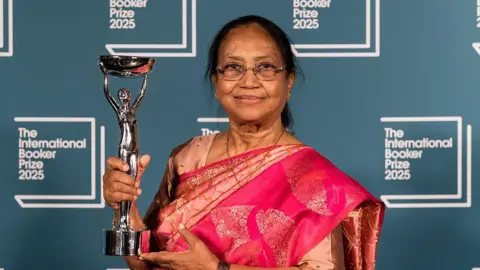Banu Mushtaq’s collection of stories, “Heart Lamp,” made headlines last week after becoming the first story collection to receive the esteemed International Booker Prize. This book not only represents a remarkable achievement for the literary world but also marks a significant milestone as the first work translated from Kannada, a language spoken in southern India, to attain this honor.
However, “Heart Lamp” stands out for an intriguing reason: it was not merely translated from an existing text. Translator Deepa Bhasthi undertook the unique task of selecting the stories that populate the collection from Ms. Mushtaq’s extensive portfolio of over 60 stories written throughout her 30-year writing career, most of which were initially published in Kannada-language journals.
This partnership that earned both women the prestigious recognition transcends traditional author-translator dynamics, showcasing an empowering relationship that has evolved within India’s literary landscape. With a proliferation of works being translated into English, Indian voices are increasingly reaching global audiences, enriching the English literature scene in the process.
Reflecting on her journey, Ms. Mushtaq, 77, draws parallels between her life's work and the narratives within her stories, stating, “I myself have broken all kinds of stereotypes, and now my book has also broken all stereotypes." As an author, lawyer, and activist, she embodies the struggle of women from minority communities against social injustice and patriarchy.
The stories within “Heart Lamp” are rooted in feminist themes, drawing inspiration from the everyday lives and challenges faced by ordinary women, many of whom are from the Muslim community. As a crucial participant in this literary venture, Bhasthi’s role underscores the importance of self-empowerment and ability of translation to unveil the rich tapestry of narratives waiting to be shared with the world.























